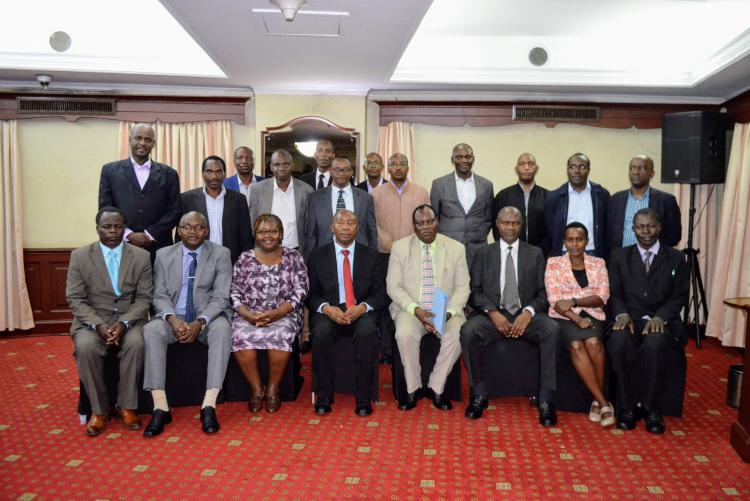Engineering education in Africa is faced with challenges ranging from poor funding to inadequate facilities both quantitatively and qualitatively, non-availability of adequate human capacity, brain drain and poor staff retention. Others include weak university/industry partnerships, outdated curricula, traditional approach to teaching, poorly equipped labs, non-availability of local codes and monitoring standards for the training of prospective engineers and an inadequate ICT environment1.
The college of Architecture and Engineering was part of a workshop on tracer study on destination of engineering graduates from public and private universities in Kenya program.
The workshop which was held at the Nairobi Safari club brought together various stakeholders from the ministry of Education as well as faculty members from various institutions that offer Engineering courses.
The study aims at tracing Engineering graduates from public and private institutions to determine the relevance of their training to the needs of the labor market and how this can be infused in Engineering curriculum development and review process.
Engineering education in Africa is faced with challenges ranging from poor funding to inadequate facilities both quantitatively and qualitatively, non-availability of adequate human capacity, brain drain and poor staff retention. Others include weak university/industry partnerships, outdated curricula, traditional approach to teaching, poorly equipped labs, non-availability of local codes and monitoring standards for the training of prospective engineers and an inadequate ICT environment1.
With this background, the study seeks to address the issues by finding out where graduates are employed, how long they take to get employment and the challenges they face, relevance of their training to industry needs among others.
The pilot study was done at University of Nairobi with other universities to follow. Members discussed initial findings of the pilot study and ways to improve Engineering teaching and curricula development as well as improve the link with industries. They also had a discussion of the methodology used and came up with news suggestions on how to improve Engineering education in the country as well as industry uptake and relevance.
1Falade, F. (2008) CHALLENGES IN ENGINEERING EDUCATION IN AFRICA. President, African Engineering Education Association
- Log in to post comments

